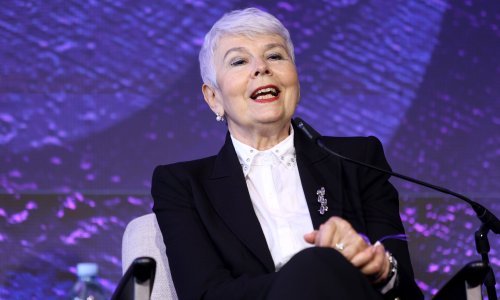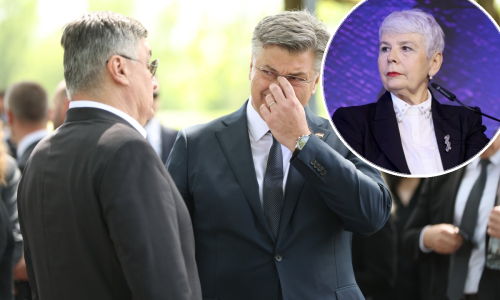A Croatian government delegation headed by Prime Minister Jadranka Kosor visited Bleiburg, Austria, on Monday to pay tribute to Croatian soldiers and civilians killed there at the end of the Second World War.
"We are gathered here to remember the human rights of many people, whose number has not been fully established, the human rights of their families and the human rights of every person. Those people were killed without a court trial, without charges and without a right to defence," Kosor told reporters after a wreath-laying ceremony in the Bleiburg field.
Croatia is commemorating the 65th anniversary of massive executions of Croatian pro-Nazi Ustasha troops, Home Guard soldiers and civilians by the Yugoslav partisans under Josip Broz Tito.
The Croatian forces and civilians fled across Slovenia to Austria to surrender to allied forces at the end of the war. They were stopped by British forces outside Bleiburg and handed over to the Yugoslav forces. It is believed that about 95,000 Croatian soldiers, excluding civilians, surrendered to the British at Bleiburg on May 15, 1945.
The remaining military and civilian prisoners were then forced on death marches back to Yugoslavia, during which many of them died. The death marches are also collectively referred to in Croatia as the Way of the Cross.
Kosor condemned people who appear in fascist uniforms at memorial sites such as Bleiburg. "Those killed should be remembered in a dignified way, so I condemn those who come here, and sometimes to other places as well, wearing fascist uniforms. That certainly won't help in shedding full light on what happened here."
The prime minister cited the UN's Universal Declaration of Human Rights, the Council of Europe Parliamentary Assembly resolution that condemned crimes committed by communist regimes, and the Croatian Parliament Declaration of 2006 which referred to crimes committed between 1945 and 1990.
Kosor said "it's time the whole and real truth was told about every event in Croatia, without anyone being afraid," stressing that she was against any revisionism of the role of the antifascist movement, but that account should be taken of the crimes committed by the communist regime in the post-war period.
The prime minister was accompanied by Interior Minister Tomislav Karamarko and Education, Science and Sport Minister Radovan Fuchs.
Asked if there was any news about exhumations at the Huda Jama mass grave site in Slovenia, Kosor recalled that Croatia and Slovenia had signed an agreement on marking mass grave sites and that Zagreb would insist on that agreement being fully implemented.
"We have the right to know the whole truth and all the facts and to fully investigate everything," she said, adding that the agreement with Slovenia provided for the possibility of such sites being marked so that the truth should be known.
Kosor expressed hope that something would be done in the foreseeable future "for the surviving families who were not allowed for decades to speak in public about what had happened to their family members," and that the victims would be identified.
Asked about the opening of a section in the Serbian Military Museum in Belgrade devoted to Serbian WWII war criminal Draza Mihajlovic, where he is portrayed as an antifascist fighter, Kosor said that the position of the Croatian government was that "historical facts should not and cannot be changed because it can be very dangerous."
"Draza Mihajlovic headed a quisling movement and countless horrendous war crimes were committed under his command, which is a historical fact. We find any revision of such facts worrying, especially if it happens, as we can see, under government patronage. We are concerned about it, but hope that it won't be a general trend. It's very clear to us on which side Draza Mihajlovic was. By committing a series of war crimes he sided with those the antifascists fought against," the Croatian prime minister said.


































